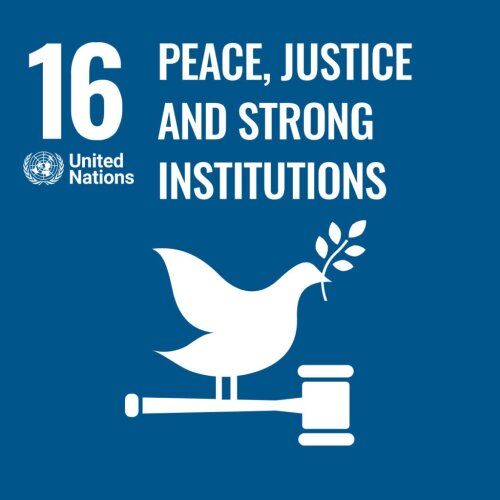Best Natural Resources Lawyers in Trinidad and Tobago
Share your needs with us, get contacted by law firms.
Free. Takes 2 min.
Or refine your search by selecting a city:
List of the best lawyers in Trinidad and Tobago
About Natural Resources Law in Trinidad and Tobago
Trinidad and Tobago is renowned for its abundance of natural resources, primarily oil and natural gas. The country's economy heavily relies on its energy sector, which has contributed significantly to its GDP. Additionally, Trinidad and Tobago are rich in other natural resources, including asphalt, forests, and fisheries. Managing these resources sustainably requires robust legal frameworks to ensure environmental protection, equitable resource distribution, and optimal economic benefits.
Why You May Need a Lawyer
Engaging with natural resources in Trinidad and Tobago may involve various legal considerations. You may need a lawyer in situations such as:
- Obtaining licenses and permits for oil and gas exploration or other resource extraction activities.
- Negotiating contracts for the sale or lease of resource-rich lands.
- Resolving disputes over land ownership and resource rights.
- Compliance with environmental regulations and addressing breaches.
- Legal guidance for foreign entities investing in the resource sector.
Local Laws Overview
Trinidad and Tobago’s legal framework for natural resources is detailed and complex. Key areas to be familiar with include:
- Petroleum Act: Governs the exploration, extraction, and management of oil and natural gas.
- Minerals Act: Regulates mining activities and promotes sustainable development of mineral resources.
- Environmental Management Act: Establishes guidelines for environmental protection and addressing pollution.
- Forestry Act: Provides for the conservation and management of forest resources.
- Fisheries Act: Addresses the regulation and sustainable management of marine resources.
Frequently Asked Questions
What permits do I need to start oil exploration in Trinidad and Tobago?
You will need to obtain a license from the Ministry of Energy and Energy Industries, following their regulatory guidelines.
How can I resolve a land title dispute related to mineral extraction?
It's advisable to engage with a lawyer specializing in property and resource law to navigate legal claims and reach a resolution.
What are the penalties for non-compliance with environmental regulations?
Penalties can range from fines to imprisonment, depending on the severity of the environmental breach.
Can foreign investors lease land for oil production?
Yes, foreign investors can lease land but must comply with local laws and obtain necessary approvals from relevant authorities.
How are royalties from resource extraction calculated?
Royalties are typically calculated based on the volume of resources extracted, market value, and specific agreements in place.
Is there a government body overseeing fisheries management?
Yes, the Fisheries Division under the Ministry of Agriculture, Land and Fisheries is responsible for this.
What steps are involved in environmental impact assessments?
Environmental impact assessments usually involve initial screening, detailed studies, public consultations, and final report assessments.
What legal recourse do I have if my land is polluted by an oil spill?
You can file a complaint with the Environmental Management Authority and seek damages through legal proceedings.
Do I need a lawyer for renewing resource extraction licenses?
While not mandatory, having a lawyer can help ensure compliance and address any legal intricacies.
How is indigenous land affected by natural resource extraction?
Indigenous rights are protected under local laws, and any extraction must consider these rights with the possibility of legal support needed for negotiation.
Additional Resources
Consider reaching out to or consulting the following resources for further assistance:
- Ministry of Energy and Energy Industries: Provides guidelines and regulations for the energy sector.
- Environmental Management Authority (EMA): Offers resources and oversight on environmental laws and compliance.
- Chamber of Commerce: Can provide insights into business and investment opportunities in Trinidad and Tobago.
- Fisheries Division: Offers guidance and regulations on marine resources.
Next Steps
If you need legal assistance in the field of natural resources in Trinidad and Tobago:
- Consult with a lawyer who specializes in natural resources or environmental law.
- Gather all relevant documents related to your legal issue, including contracts, permits, and correspondence.
- Contact the relevant government department for clarification on specific requirements and procedures.
- Consider attending workshops or seminars related to natural resources to gain better insights.
Securing appropriate legal counsel ensures that you navigate the complex legal landscape effectively and protect your rights and interests.
Lawzana helps you find the best lawyers and law firms in Trinidad and Tobago through a curated and pre-screened list of qualified legal professionals. Our platform offers rankings and detailed profiles of attorneys and law firms, allowing you to compare based on practice areas, including Natural Resources, experience, and client feedback.
Each profile includes a description of the firm's areas of practice, client reviews, team members and partners, year of establishment, spoken languages, office locations, contact information, social media presence, and any published articles or resources. Most firms on our platform speak English and are experienced in both local and international legal matters.
Get a quote from top-rated law firms in Trinidad and Tobago — quickly, securely, and without unnecessary hassle.
Disclaimer:
The information provided on this page is for general informational purposes only and does not constitute legal advice. While we strive to ensure the accuracy and relevance of the content, legal information may change over time, and interpretations of the law can vary. You should always consult with a qualified legal professional for advice specific to your situation.
We disclaim all liability for actions taken or not taken based on the content of this page. If you believe any information is incorrect or outdated, please contact us, and we will review and update it where appropriate.
Browse natural resources law firms by city in Trinidad and Tobago
Refine your search by selecting a city.













